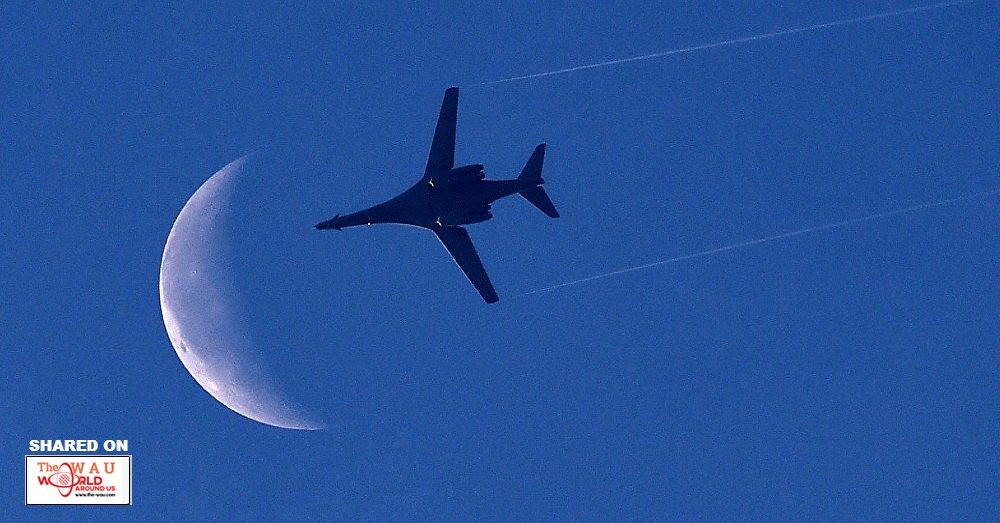As the presidents of the US and China participate in the Group of 20 Summit in Hamburg, the two nations continue to rattle their sabers in the disputed South China Sea. The latest muscle-flexing came from the United States Air Force, which flew a pair of B-1B Lancers over the contested waters Friday.
This is "the first time US Pacific Command-directed B-1B Lancers have conducted combined training with JASDF [Japanese Air Force] fighters at night," according to a statement issued by the US Pacific Air Forces Public Affairs office. After the bilateral exercises, "the B-1Bs proceeded to the South China Sea before returning to Andersen Air Force Base."
The mission "demonstrates how the US will continue to exercise the rights of freedom of navigation anywhere international law allows," the US statement read. The United States has formally remained neutral in the South China Sea dispute, but the American leadership has protested Chinese activities such as building artificial islands to house military facilities in the economically-significant sea region. They have used naval power in the past to enforce "freedom of navigation" through the South China Sea.
Chinese Foreign Ministry spokesman Geng Shuang told Reuters that while the American bombers were not violating any laws, it was distasteful to China that countries like the United States would use "the banner of freedom of navigation and overflight to flaunt military force and harm China's sovereignty and security."
Also speaking to Reuters, China's Defense Ministry said that the Chinese military "effectively monitors relevant countries' military activities next to China. The Chinese military will resolutely safeguard national sovereignty and security as well as regional peace and stability."
This is the latest in a continued military build-up in the South China Sea foreshadowing next week's Malabar trilateral naval exercises between India, Japan and the US. China, which reads the exercises as a tacit threat against their claims in the sea, has deployed a small fleet of 14 vessels to patrol the waters in response to the upcoming exercises.
US President Donald Trump is expected to meet with Chinese President Xi Jinping in Hamburg and discuss North Korea – specifically, that country's recent claim that they have successfully tested an intercontinental ballistic missile (ICBM) for the first time. Some experts believe that the alleged ICBM could reach American territory such as Hawaii, Guam, Alaska and even Washington state.
The relationship between the United States and China has been as precarious as ever since Trump took office in January. Trump, whose frequently denigrated China as a currency manipulator and job thief during his presidential campaign, pivoted and attempted to establish better ties with Beijing when North Korea emerged as perhaps the largest foreign policy challenge facing the US.
China is North Korea's primary trade partner and Beijing holds considerable sway over the rogue state's leadership, but despite all efforts so far, Pyongyang has not abated their missile program. Trump recently declared that his attempts to disarm North Korea through Chinese economic pressure a failure.
"While I greatly appreciate the efforts of President Xi & China to help with North Korea, it has not worked out. At least I know China tried!" he tweeted on June 20. "Trade between China and North Korea grew almost 40% in the first quarter. So much for China working with us — but we had to give it a try!" he added on July 5.
Trade between China and North Korea grew almost 40% in the first quarter. So much for China working with us - but we had to give it a try!
— Donald J. Trump (@realDonaldTrump) July 5, 2017
While I greatly appreciate the efforts of President Xi & China to help with North Korea, it has not worked out. At least I know China tried!
— Donald J. Trump (@realDonaldTrump) June 20, 2017
Since then, the US relationship with China has flagged once more, with the Americans expressing their displeasure through implicit objections against Chinese territorial claims in the South China Sea. Smaller nations such as Brunei, Malaysia, the Philippines, Taiwan and Vietnam all also claim at least part of the sea as their territory.
Share This Post















